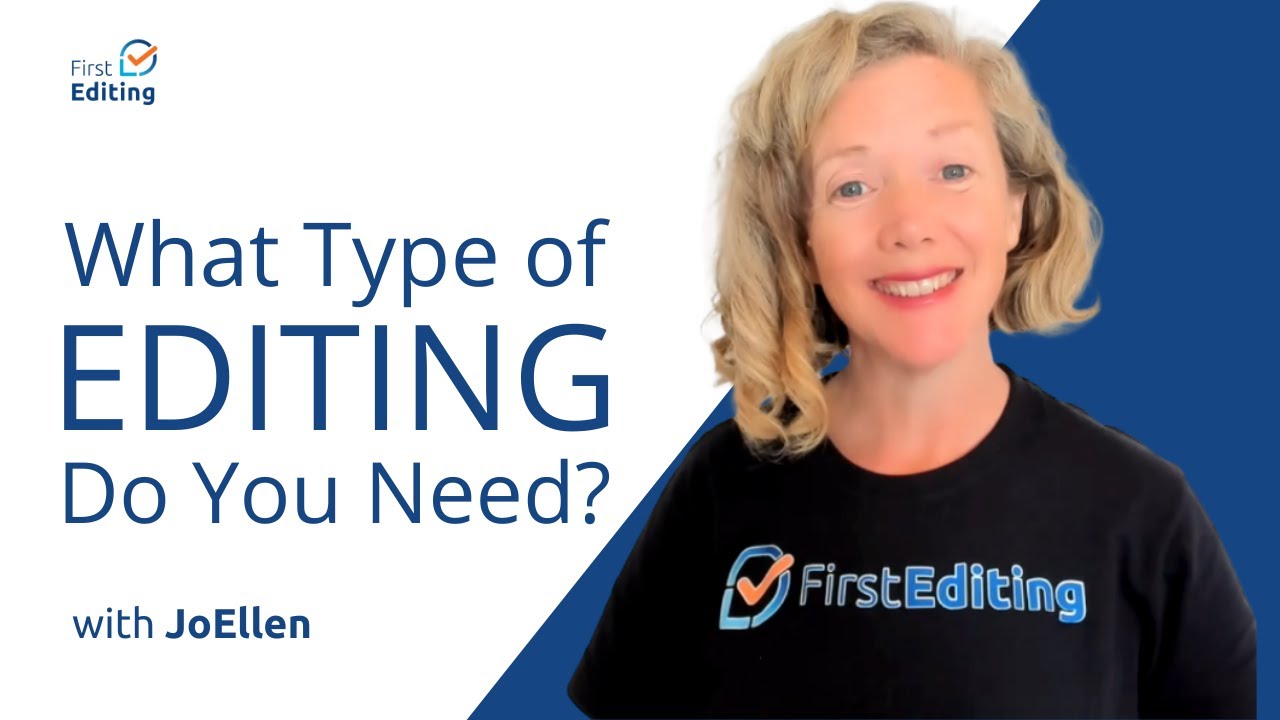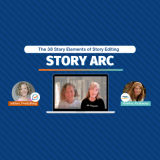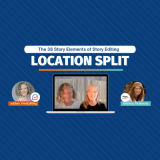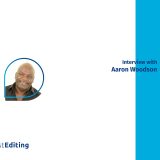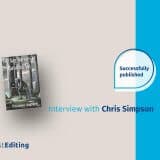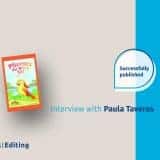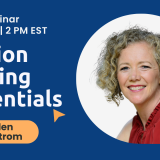
In this episode, Hayley Milliman joins JoEllen Nordstrom as they talk about locating and fixing hidden verbs.
ProWritingAid is an editing platform and style editor, and considered to be a grammar guru. It basically mentors you all in one online package. They’ve got world-class grammar and style checking. You can use this plugin to do your basic copy editing; it’s one of the professional tools we use here at First Editing. The more tools you have in your bag, the better off your writing is, and that’s why we are partnering with ProWritingAid to bring you more information about how to improve your writing.
Learn how you can locate and fix hidden verbs and how they can help improve your writing now!
What are Hidden Verbs?
Hidden verbs are a common mistake a lot of writers make when they are trying to sound overly formal or when the writing is a little bit more complicated than it needs to be. This process is called nominalization, and it’s basically when you take a verb, or what could stand as an action word, and turn it into a noun phrase. Let me give you an example. If I say, “Hayley will announce this on Friday,” the verb in that sentence is announce. When you have a hidden verb, you turn that into a noun phrase so instead of saying announce, you say, “Hayley will make an announcement on Friday.” So it’s the same thing but you’re basically taking that verb and turning it into this noun phrase with a weaker verb where make becomes your verb and announcement becomes your noun phrase. That makes the phrase more complicated. So it’s taking that action away from the real verb and hiding it behind a weaker verb, taking the action out of announcing and putting the action into make.
Similarly, instead of saying, “We’re going to discuss this,” a hidden verb would be to say, “We’ll hold the discussion.” So anything where you’re taking that verb and turning it into a noun, that’s again what we call nominalization, and we also refer to it as hidden verbs.
This has a huge impact on the readers and specifically, we need to remember that for a lot of our listeners, readers, and our writers out there, English may not be their first language and it gets very complicated.
How will Language Affect the Readers?
One of the things we should remember when we are writing is to always strive for clarity, using the most clear and concise way of saying something. It doesn’t mean that our language has to be robotic or anything like that, but we want our language to be clear and powerful and in many ways, verbs are the more powerful words in our sentences because they hold that action. So when we take away power from them by turning them into a noun phrase, it’s making our writing less clear and less powerful and as writers, we are trying to be clear and concise.
It’s not just that we’re saying things in the shortest way possible, but also we’re saying things that will really resonate with readers. When you take power out of your verbs and hide it and use tricky noun phrases, it takes the power away from those verbs. This also makes your sentences longer, as “make an announcement” is much longer than just “announce,” adding extra words you don’t need as it’s taking power away from the verb.
We always want to think about making our writing effective by having power in our nouns and verbs. Keep power in there so it’s always clear. Just have the verb be announced or discussed or whatever verb used so that way, it’s clear and powerful. It’s really just showing our readers exactly what we need and not hiding it behind stilted language.
As we talk about a lot of this, it’s good to note that nominalization is grammatically correct. It’s not incorrect to say, “I will make an announcement on Friday.” That’s perfectly fine grammatically. It just takes the power out of what you are trying to say. A lot of times this happens when as writers we get a little bit nervous, or we’re trying to hedge. Hedging language is more common with women, especially in a professional setting where they are not trying to assert themselves. They just hide in this language. I think the great example of this are the hidden verbs where you’re trying to say, I don’t want to be too strong, so, “I’m going to make an announcement.”
It becomes a bad habit—not just for women, but for a lot of writers—to take the power out of it and make it a bit less direct. In most instances, we actually should be more direct about what we mean.
Language is the most powerful tool we have as human beings and we need to not only use it in our own words, but in our writing to make it very strong because we don’t get to follow up with a remark or comment; after we’ve written something, it’s done. It’s out there.
How to Fix the Hidden Verbs
You can fix hidden verbs by using ProWritingAid. It makes it really easy for you. If you find these hidden verbs in your writing, basically you want to make a decision: is that noun phrase where a verb really should be? The announcement should be announced and a decision should be decided. So you are going to replace the weak noun phrase with just the strong verb. Replace “I’m going to make an announcement” with “I’m going to announce.” That noun (announcement) is all you need to find; it will be in the hidden verb phrase where a verb is associated with that noun, so you just replace the weak noun phrase with the stronger verb.
Our editors know how to follow the style guide, do content editing, fix grammar and all that. Using a tool like ProWritingAid allows you, the writer, to go deeper rather than having the editors say okay, that should be an active verb rather than weaker noun phrase; they are wasting their energy in doing that.
Talking about the money you’ve invested in editing, it costs the same amount but you’re going to get a better, deeper edit with a much higher level of editing because now you’ve upped the game. And it makes it more intriguing and rich, appropriate and correct. We’re back to talking about the three main levels of editing here: copy editing, line editing, and content editing.
It’s not incorrect to have weaker noun phrases, but if you make your sentences active, then you’ll, say, only need the second level of editing rather than the third when you are ready to step the game up all the way with stronger verbs.
There’s a priority of being clear. You always want to be clear and concise; but then you want to also use powerful language as much as possible. We want to make sure you are using the sharpest, most effective tools you possibly can and each of these layers of an edit just help you get there.
The great thing about this is, small details will help our writers become better writers. And that could be fiction, nonfiction…it could be academic. Whatever the genre or style of writing you are doing, if you are using tools like ProWritingAid and really honing them in, it’s one of the secret weapons we use as an editor. We use the same tools behind the scenes, and putting this out to everyone allows us to be better.
When is it Okay to use Hidden Verbs?
Again, hidden verbs are not grammatically incorrect.
In a business or professional setting, where you want to hedge a little bit and you want to soften the language or soften the blow and you are doing it for a purpose, that’s okay. We also find people in fiction are using character dialogue so there’s a kind of character who is stilted and using winded British English, where they’re very formal, use it for them. But again, think about using this when they are mad or when using the hidden verb adds something to the characterization or how you are going to talk about something.
Our default should be to use powerful verbs but this is the tool that you can use if you want to convey someone’s hedging behavior or your own hedging behavior. If you want to indicate that some character is really formal in their way of speaking, then that’s a great way to use hidden verbs.
If you don’t have the foundation, it’s nice to use these tools to strengthen your writing and learn so that in the future, you are more aware and you can make those choices appropriately.
If you found this episode helpful, please like and subscribe. We’ll also include some links at the bottom here. We have a self-editing school and lots of fun things going on. If there are any questions or concerns, please let us know because we are glad to take those into consideration as we go along.




